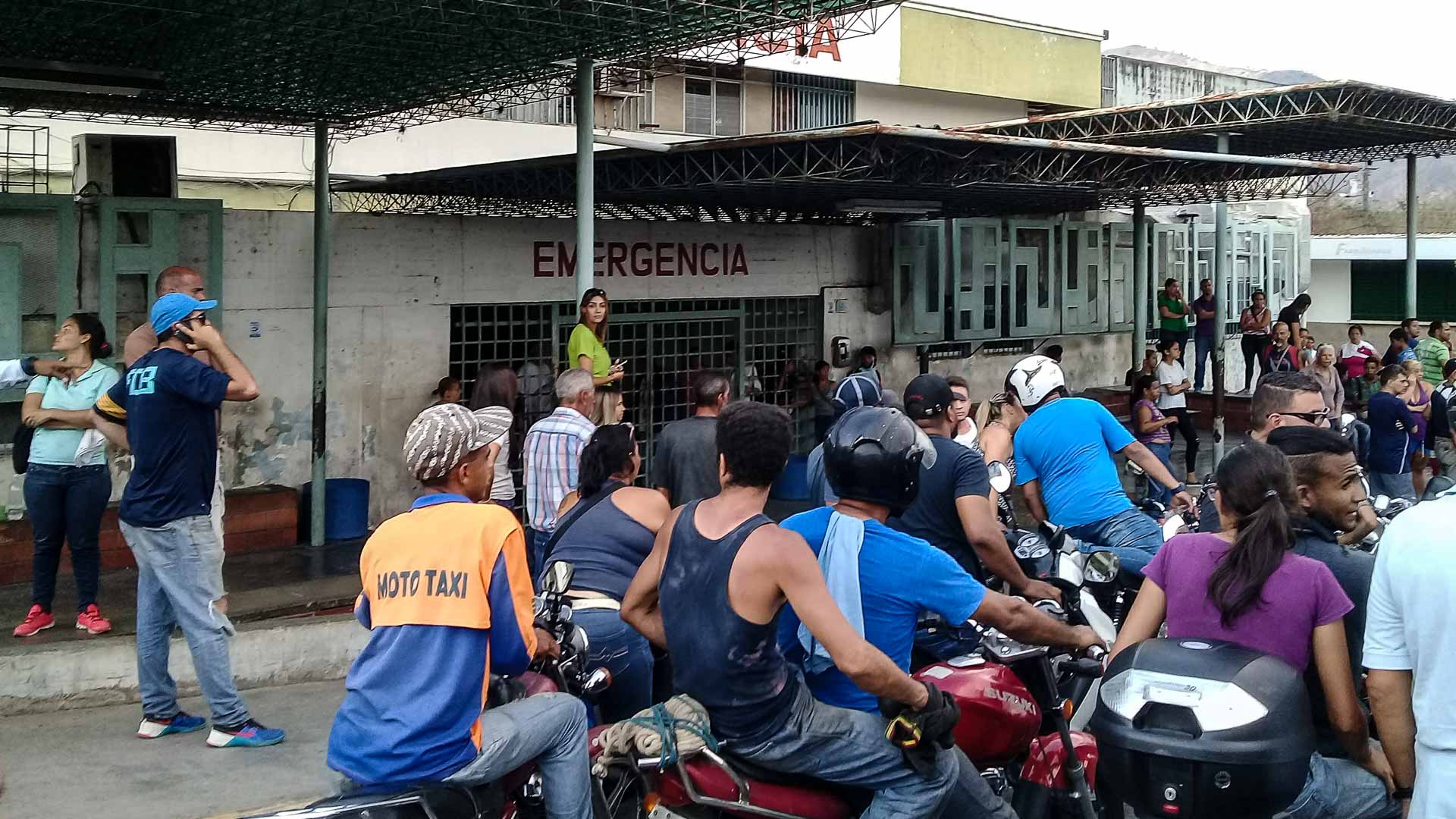

On April 30, 2019, Samuel Enrique Méndez took out to the streets of La Victoria, in the state of Aragua, along with his classmates, to protest against the regime of Nicolás Maduro. Armed police and civilians dissolved the demonstration with gunshots and arrested the young protesters that they spotted on their way. Samuel was one amongst them.

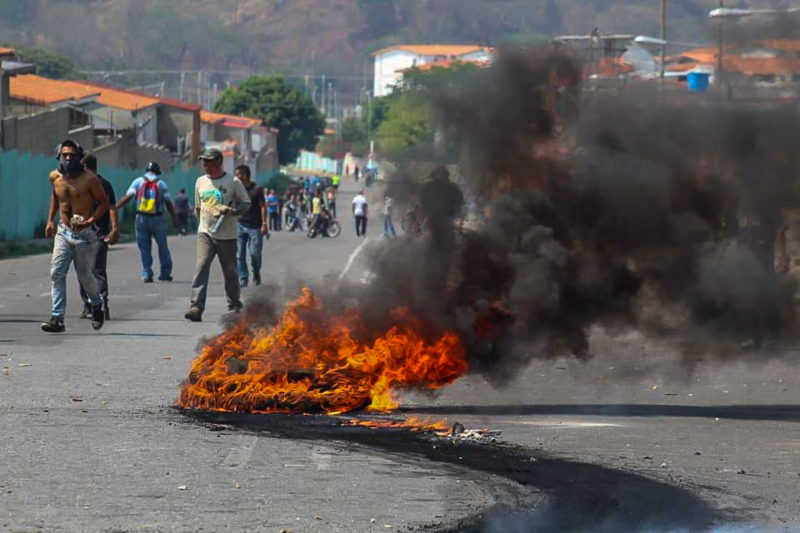 Photos: Family Méndez
Photos: Family Méndez
“Son, you must come here. You will be fine here. Things are getting ugly over there.”
Samuel Enrique Méndez, 25, was determined to stay in Venezuela. His father, a teacher overwhelmed by the dizzyingly worsening economic crisis, had emigrated to Perú and from there he insisted that he join him. And not only in order for his son to stop living a life with so many limitations because of the country’s debacle, but also because the young man’s mother had died months earlier and he did not want him to be alone. But the boy was adamant. The last time he told him that he was expecting him in Perú was one April day of 2019, to which Samuel responded categorically:
“I don’t want to leave Venezuela, Dad. We can still get through this.”
And he did many a thing for the country to pull through.
Samuel, born in La Victoria, in the state of Aragua, about 72 miles from the country’s capital, was less than a year short of getting his degree in advertising and marketing at the ‘Antonio Ricaurte’ University Institute of Technology. He began pursuing his studies there after a time in the military academy. He wanted to be a military officer. In the barracks, they offered him food and medicine for his mother and grandmother. But the support began to wane, and the abuse of the senior military staff increased. He had enough when he was placed under the sun for long hours with his campaign bag on his back. And he asked to be discharged.
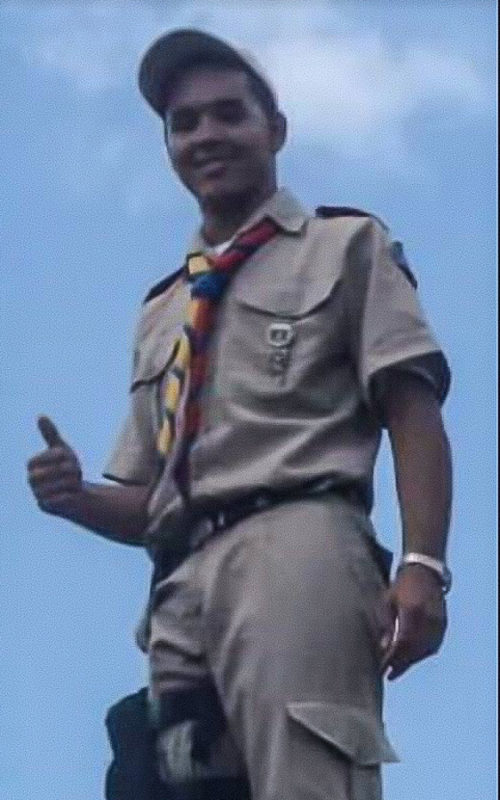
Samuel had a vocation for service. He volunteered in cultural, social and sports activities in communities as a member of the Assemblies of God Evangelical Church, a congregation that he had joined in his teens, eight years earlier. Everyone in the family was Catholic, and although at first it was not easy for them to accept that Samuel would become evangelical, they eventually conceded. “The Pastor”, they would call him, sometimes jokingly.
On Saturday, April 27, 2019, he participated, together with some fellow church members, in a sale where chicken were offered at affordable prices, which they managed to organize with the help of contacts at private firms. The heat of those April days was intense. There were many people who, although sweltering, waited for their turn. The organizers gave away chickens to some neighbors, the most needy, because although the prices were modest, they had no money to pay for them.
But, all of a sudden, a group of officers from the Ribas municipal police arrived at the site and everything changed.
“We need you to produce the permits and invoices for everything that you are selling!” said one of the policemen.
The youngsters stared at each other in astonishment. It was not the first time that they had carried out that kind of activities and they had rarely had any problems with the authorities. They explained them what it was about.
“This is a church activity,” said one.
“We are not reselling anything,” added another.
“We are supporting the community,” exclaimed one more.
However, no argument was enough. Seven young people, among them Samuel, were taken to the Ribas Municipal Police station, which is located in the headquarters of the mayor’s office, in the ‘La Mora’ Socialist City, about 300 meters from the evangelical church.
The interrogations went on for a little more than two hours; after producing invoices and the documents that they had been requested, they let them go.
They left annoyed and frustrated, thinking that the daily injustices were too many. And Samuel, with that anger still fresh inside, took to the streets three days later in the hope of working for his country and help it pull through, as he had told his father in the recent telephone conversation.
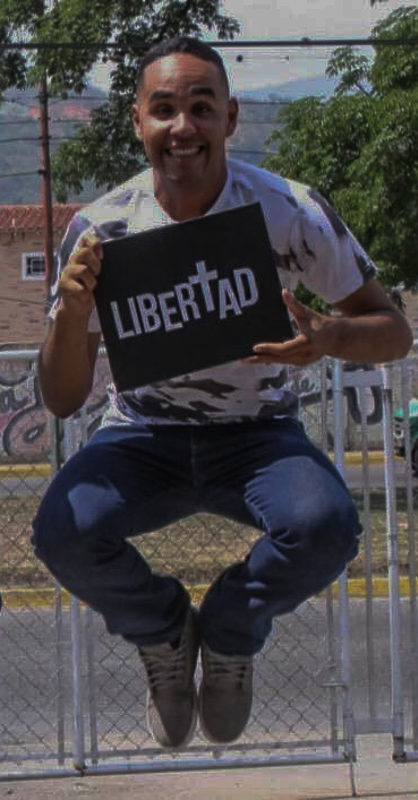
At dawn on April 30, the news from Caracas went viral: there was a military uprising in process. Juan Guaidó, the interim president of the Republic, recorded a video from the Altamira section of the highway which he broadcasted over his social networks, calling the people to the streets. He was surrounded by military men and escorted by opposition leader Leopoldo López, who had been serving a house-arrest sentence and whose jailers had just released him.
In the city of La Victoria, some 56 miles from the capital, Samuel did not hesitate to join the people who gathered in that area. “Don’t stay at home watching television, hunting flies. We need to take to the streets to fight for a better life,” he would always tell his family. That day he dressed in comfortable clothes —a brown striped shirt, jeans and white sneakers— because he knew things out there would be hectic.
First he went to a meeting with his classmates to tend to some unfinished business. And then one of the girls said:
“Samy, let’s go to El Piccolo. There are a lot of people already there!”
“Let’s go to El Piccolo!,” he replied.
They all went to the corner of El Piccolo, on the Avenida Intercomunal La Mora, the usual meeting spot for the opposition in La Victoria.
After his mother died, Samuel was taken under the care of his grandmother and aunts, with whom he often went to the protests that were organized in the city. But that day they did not feel like joining him, so he went along his friends.
They arrived at the so-called “hot corner”, where the opposition met to protest, less than 500 meters from the mayor’s office and the ‘La Mora’ Socialist City, which historically has been a stronghold of Chavismo.
A crowd had come out with flags, whistles and pots in support of the uprising against the regime of Nicolás Maduro. It was hot. A light breeze could barely be felt. People chanted slogans. Samuel stayed close to his friends. He had taken the flag and a scarf that covered his head, guarding him from the sun.
“Freedom, freedom, freedom!” he shouted.
Before noon, Samuel asked two of his friends, Jesus and Eduardo, to go with him to his house, which was near the concentration, to change shoes because he was going to play soccer as soon as the demonstration would be over. They arrived at the house, took a short break, grabbed something to eat and he changed into a pair of old shoes and a pair of worn-out green socks.
“Let’s go to El Piccolo!” Samuel asked his aunt.
“No, sweetie; I’m too tired.”
The young boys, ecstatic, returned to the street.
When Samuel’s aunt recalls it, she is clear that it was the moment that she had to restrain him so that he wouldn’t find the fate that awaited him.
After 2:00 in the afternoon, the atmosphere at the corner of El Piccolo was different. It was hotter and the breeze was impregnated with tear gas. People moved from one side to the other looking for shelter. The repression commanded by police officers and armed civilian groups turned the protest into maelstrom. Shots were fired. Lots of gunshots were fired into the air. Samuel ran amid the screaming and the confusion.
“Let’s get out of here!” shouted one of his mates.
Samuel’s heart was pounding. Sweat covered his face. His body was soaking wet. The armed civilians not only shot, but, like eagles hunting their prey, caught and assaulted the young people they bumped into along the way. All of this was happening while the police watched, having retreated to let the so-called “collectives” act at will.
They caught Samuel and beat him brutally. They beat him in the head, in the back, in the stomach. One could hear people screaming. Twenty-one wounded people were admitted to the José María Benítez hospital in La Victoria, and the scuffle had yet to come to an end.
Everyone managed to escape from the hands of the collectives, except Samuel. Neighbors and friends saw how he was taken inside the Socialist City housing development, right next to the evangelical church that he attended. They all stood there waiting for him to be released. They could not see the horror that was unfolding inside.
Samuel was shot in the chest, at point-blank range. After 4:00 p.m. the colectivos handed Samuel over to his friends, who were still outside the housing complex. He seemed to have been beaten and was covered in blood, shirtless and shoeless. One of the bullets had shattered his spine.
They called for an ambulance, but it never arrived.

The evening began to fall and people started to cry, but not because of the effects of the tear gas, but because Samuel was dead.
One of the neighbors heard of what had happened and rushed to the Méndez family’s house and knocked on the door.
“They killed him! They killed him! They killed him!” she yelled, in tears and despair.
Nobody knew what was going on, but everybody ran to the Avenida Intercomunal, near the house.
They had turned a sheet of metal into a stretcher. That is where they carried the body of a young man, covered by a Venezuelan flag with the seven stars, to the nearby hospital.
The aunt knew it was her nephew when she saw the green worn-out socks that he had put on a few hours ago, now on his shoeless feet.
“It’s my nephew!” she shouted, taking her hands to her head, crying, while another aunt fainted, shocked by the impact.
At that moment, the police arrived on motorcycles and began to shoot into the air, trying to disperse the crowd that had joined the funeral procession.
“He’s already dead! He’s already dead! Just help us take him to the hospital!” yelled the eldest aunt.
The cops didn’t help them, and left. The people lifted the body and continued the 1.2-mile march, which began on the Avenida Intercomunal La Mora, then into Avenida 1 of Las Mercedes, until it got to the José María Benítez Hospital.
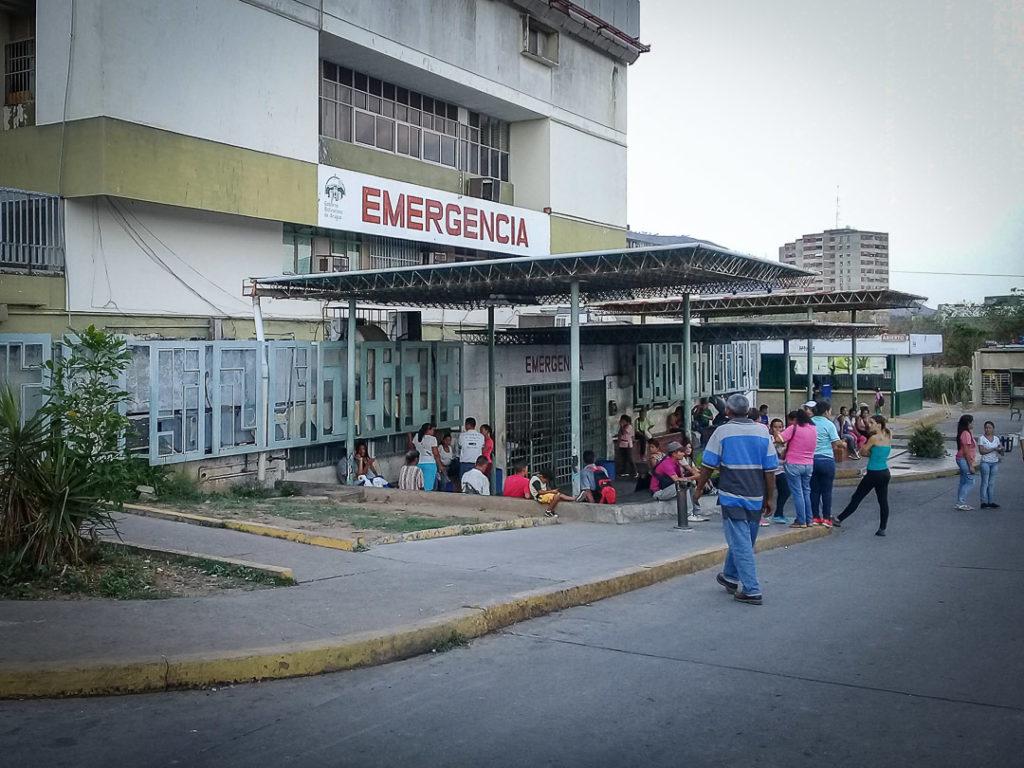
The breeze must have stopped running, or at least nobody was feeling it. The shouting from earlier mutated into a mournful silence that was broken only by tears and screaming.
“Justice! Justice!”
They sang the National Anthem, angry and sad at the same time.
Ever since that day, the family has not stopped thinking that Samuel, instead of moving with his father, went to his mother’s encounter.
Translation: Yazmine Livinalli
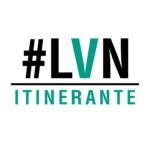
Note: This is a story of the Venezuelan website La vida de Nos. It is part of its project La vida de Nos Itinerante, which develops from storytelling workshops for journalists, human rights activists and photographers coming from 16 states of Venezuela.
1094 readings
I am a journalist from the Central University of Venezuela with a master’s degree from the Complutense University of Madrid and a diploma from the Libertador Experimental Pedagogical University in Maracay. I am currently a correspondent for El PItazo in the state of Aragua. Writing saved my life.
Un Comentario sobre;